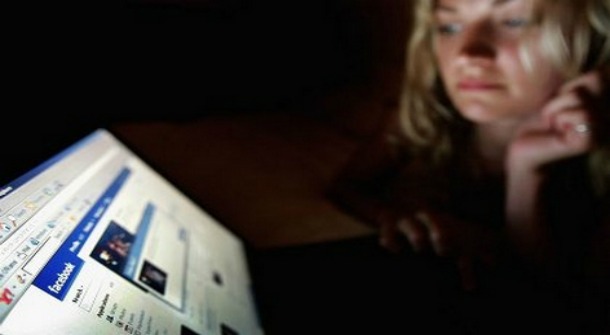
By now, most of us are aware of the irony of Facebook. The “social” network has been linked to a surprising number of adverse psychological consequences, ranging from depression and anxiety to low self-esteem and bitter jealousy. Now, a new study published in the Journal of Social and Clinical Psychology may provide an explanation for the undesirable consequences of Facebook use.
According to the study, not only do Facebook and depressive symptoms go hand-in-hand, but the relationship appears to be mediated by a well-established psychological phenomenon known as “social comparison” — meaning that making comparisons, often between our most mundane moments and our friends “highlight reels,” is what accounts for the link between Facebook time and depressive symptoms.
For the study, researchers from the University of Houston queried people about their Facebook use, how likely they were to make social comparisons (e.g., ”I always pay a lot of attention to how I do things compared with how others do things”), and how often they experienced depressive symptoms. It turned out that people who used Facebook more tended to have more depressive symptoms – but social comparison was a mediating factor only for men.
“It doesn’t mean Facebook causes depression, but that depressed feelings and lots of time on Facebook and comparing oneself to others tend to go hand in hand,” said study author and doctoral candidate Mai-Ly Steers.
The second part of the study explored the issue more deeply. Previous, face-to-face research on social comparison had found that upward social comparisons (e.g., looking at someone more popular or attractive than yourself) tend to make people feel worse, whereas downward comparisons (comparing yourself to someone with lower grades than you) tend to make people feel better about themselves. The second part of the new study tried to tap into this difference, asking people exactly how they felt when they viewed other people’s posts (e.g., “Today, when I was on Facebook, I felt less confident about what I have achieved compared to other people.”).
It turned out that people who logged more Facebook time not only had more depressive symptoms, but that social comparison – in any direction – was the mediator, and for both sexes. In other words, it didn’t matter whether a person was making upward, downward, or neutral social comparison – they were all linked to a greater likelihood for depressive symptoms.
The distorted reality of the Facebook ‘highlight reel’
While the study results may not be too surprising, they do single out the mediating factor – making comparisons to your friends – in a new way. “Other studies have established links between Facebook and depressive symptoms, but we’re trying to figure out, why do people feel this way? What these two studies reveal is that the underlying mechanism is social comparison. That’s why the more time we spend on Facebook, the more likely we are to feel depressed,” Steers told The Atlantic.
Part of the problem, she explained, is that Facebook offers a distorted view of reality that can skew our own perception of how successful or exciting our friends’ lives really are. That’s because people try to present themselves in the best light possible on Facebook, often posting about their positive experiences while leaving out the mundane or negative ones. “If we’re comparing ourselves to our friends’ ‘highlight reels,’ this may lead us to think their lives are better than they actually are and conversely, make us feel worse about our own lives,” said Steers.
 So should we all obliterate our Facebook accounts? It’s probably not totally necessary (although cutting down can’t hurt). Steers says the takeaway is larger than that – perhaps that our relationship with technology is often more nuanced than we think. For instance, as we’ve seen again and again, social networks aren’t purely social, and they may even veer into the realm of the anti-social.
So should we all obliterate our Facebook accounts? It’s probably not totally necessary (although cutting down can’t hurt). Steers says the takeaway is larger than that – perhaps that our relationship with technology is often more nuanced than we think. For instance, as we’ve seen again and again, social networks aren’t purely social, and they may even veer into the realm of the anti-social.
“[I]f every time we open our Facebook, we find ourselves socially comparing and feeling bad, then I think you have to reevaluate,” Steers told The Atlantic. “If there are negative consequences, take a step back and see if Facebook is right for you. Are the connections you’re making there worth the negative elements?” She adds that people prone to depression may want to be aware of the connections, and think about how and when they log on to social media.
Steers also calls to mind Theodore Roosevelt’s belief that “Comparison is the thief of joy.” If that’s true (and science seems to confirm that it is), it may be partly up to us to try to stop making the comparisons between our dullest moments and our friends’ most momentous ones. And maybe our friends could keep in mind that life isn’t all about the highlight reel after all – and that it wouldn’t hurt to post about those quieter, less glamorous moments, too. That might actually go a long way in making people feel more connected, instead of just the opposite.

When it comes to social media, a little humor never hurts, either!
